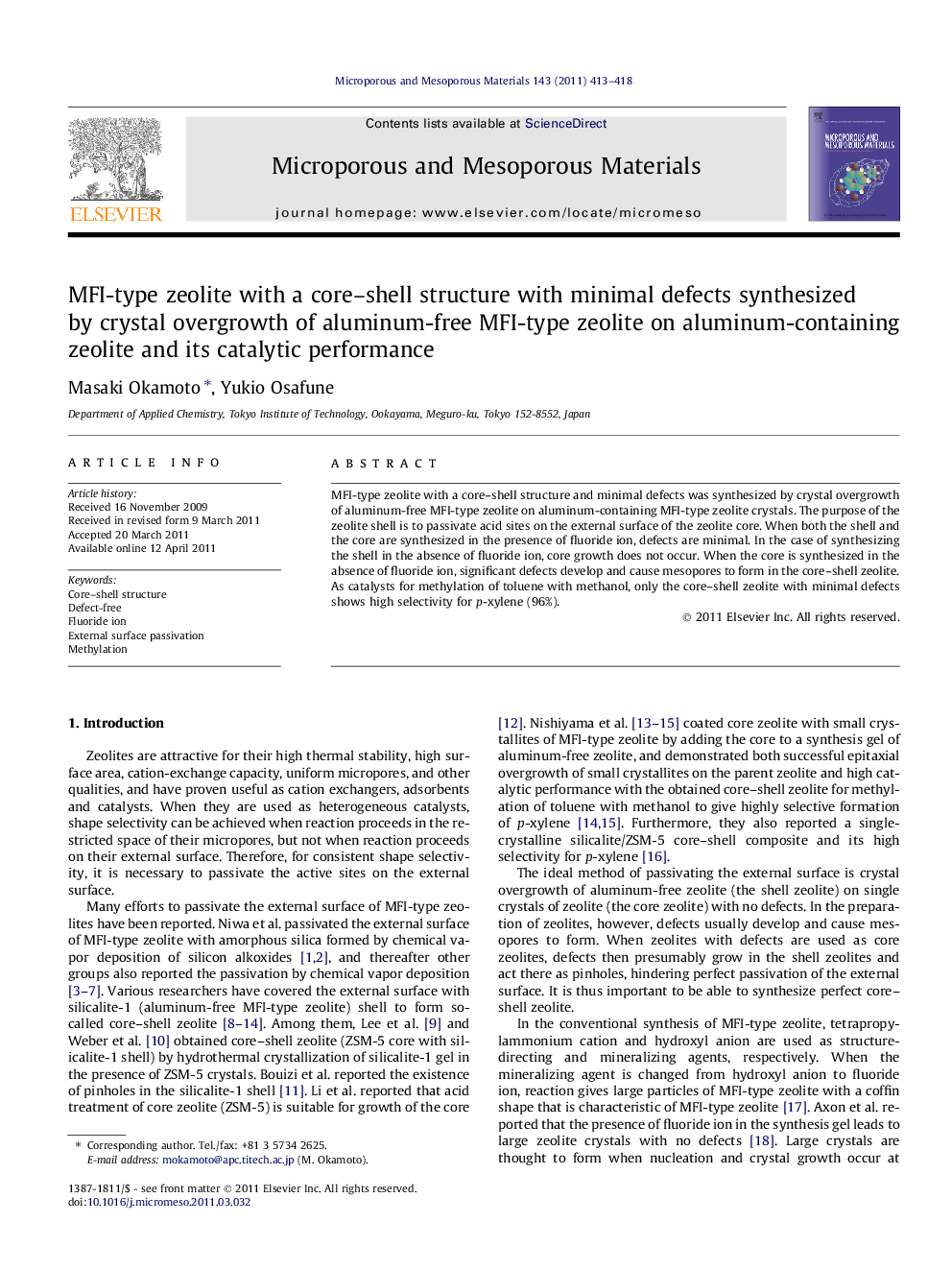| Article ID | Journal | Published Year | Pages | File Type |
|---|---|---|---|---|
| 74415 | Microporous and Mesoporous Materials | 2011 | 6 Pages |
MFI-type zeolite with a core–shell structure and minimal defects was synthesized by crystal overgrowth of aluminum-free MFI-type zeolite on aluminum-containing MFI-type zeolite crystals. The purpose of the zeolite shell is to passivate acid sites on the external surface of the zeolite core. When both the shell and the core are synthesized in the presence of fluoride ion, defects are minimal. In the case of synthesizing the shell in the absence of fluoride ion, core growth does not occur. When the core is synthesized in the absence of fluoride ion, significant defects develop and cause mesopores to form in the core–shell zeolite. As catalysts for methylation of toluene with methanol, only the core–shell zeolite with minimal defects shows high selectivity for p-xylene (96%).
Graphical abstractMFI-type zeolite with a core–shell structure and minimal defects was synthesized by crystal overgrowth of aluminum-free MFI-type zeolite on aluminum-containing MFI-type zeolite crystals to passivate acid sites on the external surface of the zeolite core..Figure optionsDownload full-size imageDownload as PowerPoint slideHighlights► The Al-free shell was formed on the Al-containing core zeolite by crystal overgrowth. ► The core–shell zeolite with minimal defects was synthesized in the presence of F ion. ► The shell passivated acid sites on the external surface. ► The core–shell catalyst showed high p-xylene selectivity in toluene methylation.
